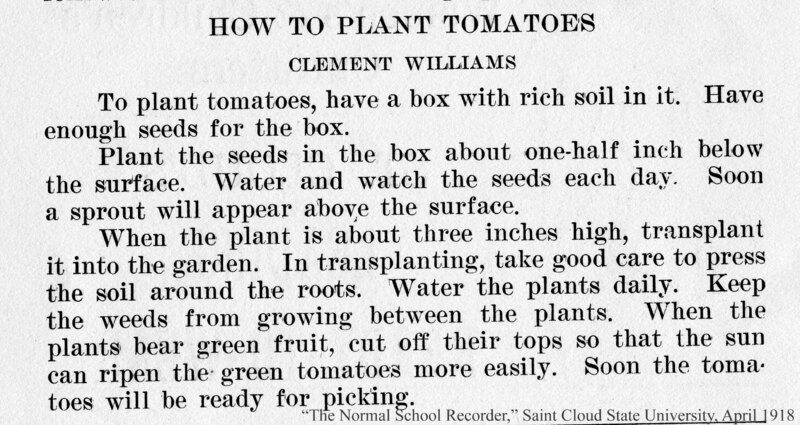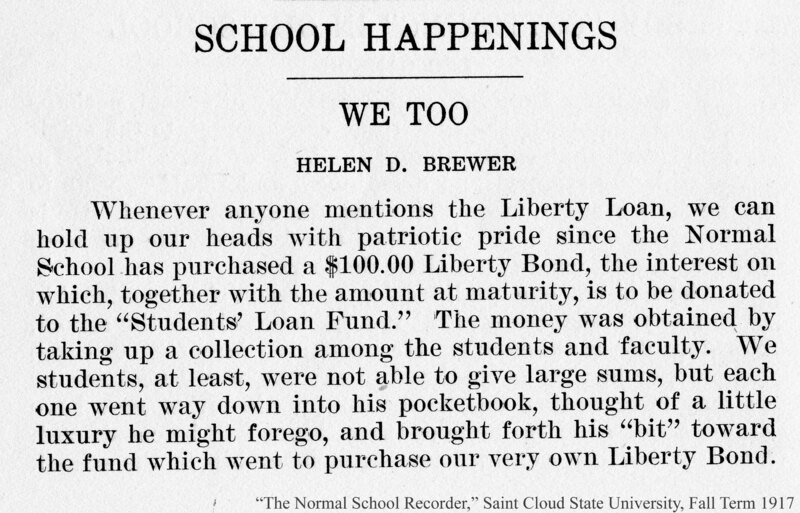Conservation
Conservation during WWI focused on food and a variety of other items that were viewed as necessary for the war effort. On campus, and throughout the country, citizens felt that if they were able to conserve as many items needed for the war effort as possible, they would help bring the conflict to a faster and victorious conclusion.
Conservation became a part of students lives in a variety of ways.
Food Conservation
"A person who refuses to change his eating habits now is more than indifferent; he is disloyal."
Leo Gannon, The Normal School Recorder, February 1918
Although optional, food rationing was widespread throughout the U.S. during WWI. The St. Cloud Normal school was no exception to this, with students believing it was their patriotic duty to participate in the food rationing, and change their diets and lifestyles in order to support the war effort.
Rationing of Personal Items
"...many of the students had been accustomed to wearing poverty clothes on every occasion since the beggining of the war."
Roma Gans, The Normal School Recorder, Spring 1917
In addition to the food rationing, the St. Cloud Normal School students made other sacrifices in the name of supporting the war effort.
Students gave many of their personal items, such as clothing for the cloth, and money to purchase liberty bonds in the name of the school, as well as their personal time to support war activities. The conservation of items, in addition to food conservation, was a patriotic duty of all citizens.
Conservative Conservation
Start the player to hear a recording of Normal School student Leo Gannon's article "Conservative Conservation" in the February 1918 issue of the Normal School Recorder. Gannon discussed the importance and need for students to participate in natiowide food rationing.



